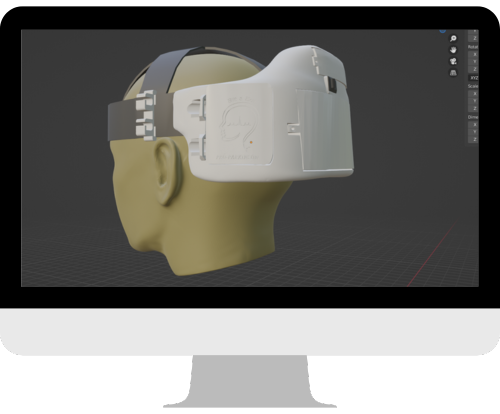
3D – Medical Diagnosis Helmet for Parkinson’s Disease
In collaboration with the Federal University of Pernambuco, this project focused on creating a helmet to aid early Parkinson's disease detection. Using Blender for 3D modeling and precision printing, I crafted a prototype that combines diagnostic electronics in a non-invasive, user-friendly design.
Project Features:
Custom 3D Modeling: Used Blender to create an ergonomic, comfortable helmet model with a universal fit.
Electronic Integration: Designed to securely incorporate electronic boards, power supply, connectors, LEDs, and a switcher, ensuring user comfort and component functionality.
PLA 3D Printing: Chose biocompatible, durable PLA, using Cura Software to fine-tune print settings for quality prototypes.
Functional Design: Focused on functionality for accurate Parkinson's disease diagnosis, optimizing LED and sensor placement.
Collaborative Development: Partnered closely with the Federal University of Pernambuco, aligning with their research for design refinement.
Technical Specifications:
Software: Blender for 3D modeling, Cura for 3D printing preparation.
Material: Polylactic Acid (PLA) for its eco-friendly and patient-safe properties.
Printing Technology: Fused Deposition Modeling (FDM) for its accuracy and reliability in creating complex, wearable medical devices.
Electronics: Integration of custom PCBs, LEDs, a battery pack, connectivity modules, and diagnostic sensors designed to monitor and analyze patient conditions in real-time.
This project demonstrates skills in combining 3D design with engineering to solve healthcare problems innovatively. It also showcases ability to collaborate with academia and research to turn scientific insights into practical, life-improving products.






